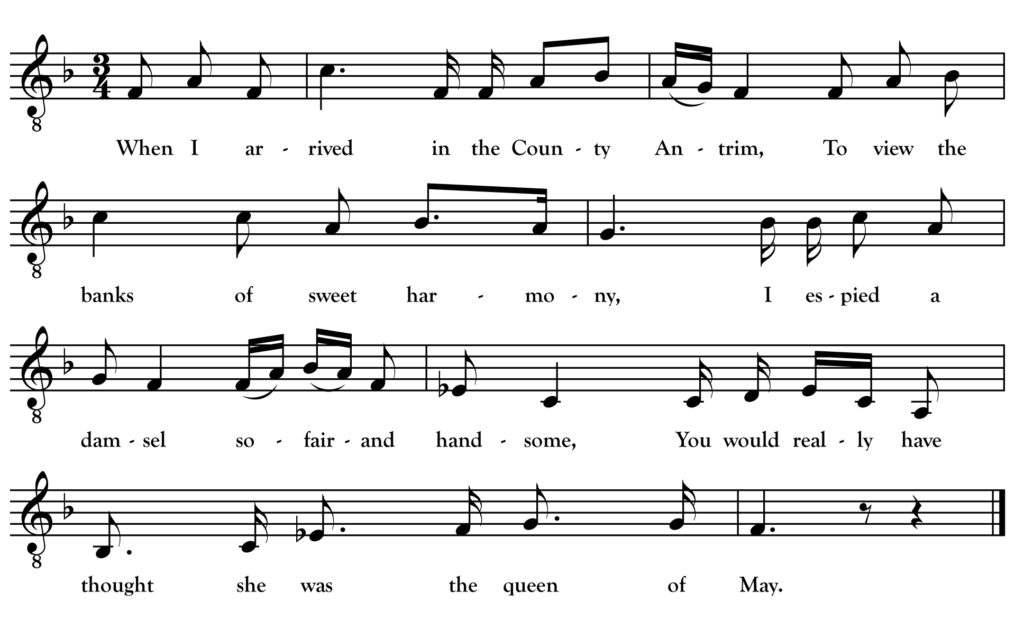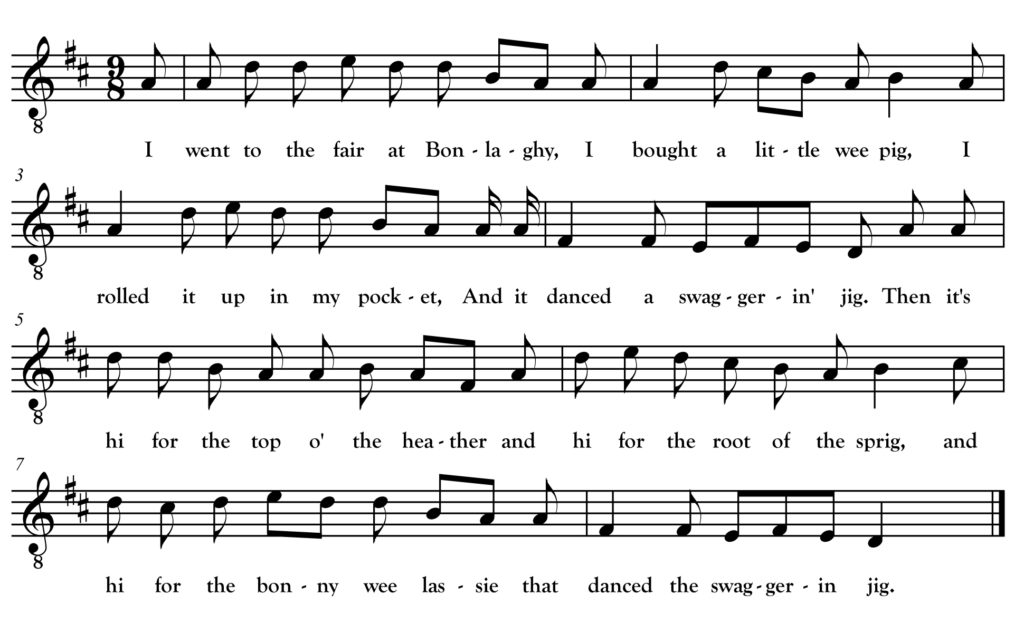The Peddler

Oh of all the trades that’s going
sure a peddler’s my delight,
For if he rambles all the day he’ll comfort you at night,
With his little pack upon his back he’ll travel to and fro,
And he’s called the jolly rover wherever he will go.
He roams throughout the nation his pleasure to divert,
With youthful recreation for to delight his heart,
And courting pretty fair maids through market-town and fair,
His life it gaily passes free from all strife and care.
He’s a weaver in Londonderry-o, a
shoemaker in Strabane,
Hair merchant in Limavady and a brewer in Coleraine,
Where he does brew good humming ale and love a pretty maid,
And when he gets in to Belfast, he’s a butcher by his trade.
In Lisburn he’s a joiner, a glazier in Lurgan town,
In Dromore he’s a brazier and a smith in Portadown,
In Armagh he’s a piper, a merchant in Newry town,
And when he comes to Drogheda he draws good ale that’s brown.
Oh as he does roam the nation, his fancy to pursue,
Changing his occupation for every place that’s new,
Oh kissing pretty fair ones wherever he will roam,
And still at night his love is true when he’ll return home.
This month’s song comes from a 1938 recording of Andrew E. Gallagher (1878-1939) of Beaver Island, Michigan. There were multiple Gallagher families on the island including that of the great singer Dominick Gallagher whose songs I’ve written about before and whose father came from Arranmore Island, Co. Donegal. Andrew’s father and mother (a Roddy) both came from Rutland Island (aka Inishmacadurn), a smaller island between Arranmore and the mainland. The musical Bonner family on Beaver Island also originated from tiny Rutland Island.
“The Peddler” appears as “The Jolly Rake of All Trades” in a London broadside published before 1844 and was printed later in the 1800s in Dublin. I have found no evidence of the song being collected from a singer anywhere other than Beaver Island. It is similar to, and may even have been the inspiration for, the more popular “Dublin Jack of All Trades.” Unlike that locally-focused song, the “Jolly Rake/Peddler” travels, works and womanizes all around Ireland. Gallagher only sang verses one, three and five above. Several more verses covering the breadth of Ireland appear in broadsides available online through the Bodleian Library and I chose two (“He roams…” and “In Lisburn…”) to fill out the version here.


